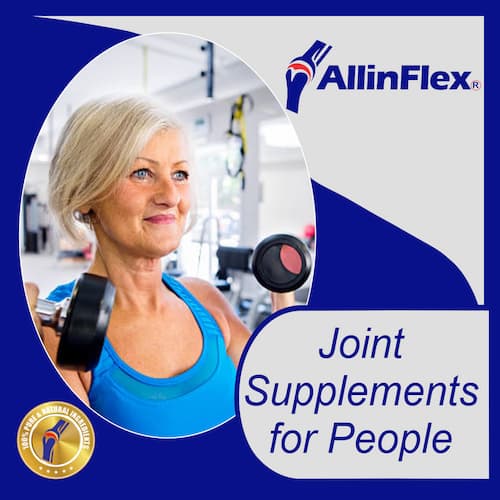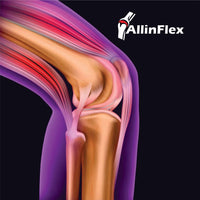Optimal Joint Health for Women
Women encounter distinct challenges that can impact their joint health.
Hormonal factors play a significant role, with fluctuations in estrogen levels affecting joint strength and stability. Additionally, life stages like menopause and pregnancy introduce specific considerations for joint health.
During menopause, declining estrogen levels can lead to reduced bone density and joint pain. It becomes crucial to support joint health during this transition to maintain an active lifestyle. Hormonal fluctuations can also contribute to joint inflammation and discomfort.
Pregnancy, on the other hand, places additional strain on the joints due to weight gain and hormonal changes. The body's ligaments become more relaxed to accommodate the growing baby, potentially leading to joint instability and discomfort. Postpartum joint recovery becomes a priority for new mothers, allowing them to regain mobility and comfort.
Common Joint Issues in Women:
Two prevalent joint conditions that affect women are osteoarthritis and rheumatoid arthritis. Osteoarthritis, a degenerative joint disease, often occurs with age or as a result of previous joint injuries.
It is characterized by the gradual breakdown of cartilage, leading to joint pain, stiffness, and reduced mobility. Rheumatoid arthritis, an autoimmune condition, causes inflammation and joint damage, leading to pain, swelling, and deformities.
Postpartum joint issues are also common among women. The body undergoes significant changes during pregnancy, and joints may require additional support during the recovery period. Joint pain, especially in the hips, lower back, and knees, can persist after childbirth due to the strain endured during pregnancy.
The Role of Nutrition and Lifestyle in Joint Health:
Maintaining a healthy weight through proper nutrition and regular exercise plays a crucial role in supporting joint health for women. Excess weight puts additional stress on the joints, particularly in weight-bearing areas such as the knees and hips.
A balanced diet that includes essential nutrients can provide the building blocks for strong and healthy joints. Nutrients like calcium, vitamin D, omega-3 fatty acids, and antioxidants are particularly beneficial for joint health.
Regular exercise, such as low-impact activities and strength training, helps improve joint flexibility and muscle strength.

Engaging in activities like swimming, cycling, or yoga can provide cardiovascular benefits without putting excessive strain on the joints. Strengthening the surrounding muscles helps stabilize and support the joints, reducing the risk of injury and improving overall joint function.
Exploring Key Joint Supplements for Women:
Glucosamine and Chondroitin: Glucosamine and chondroitin are two popular joint supplements that work synergistically to promote joint health. Glucosamine is a naturally occurring compound in the body that supports cartilage health and reduces inflammation. Chondroitin, on the other hand, helps lubricate joints and inhibits enzymes that break down cartilage. Together, they can help alleviate joint pain and improve mobility. Recommended dosages vary, but starting with 500mg of glucosamine and 120mg of chondroitin per day is a common guideline. It's important to note that these supplements are typically derived from shellfish, so individuals with shellfish allergies should exercise caution.Collagen Peptides: Collagen peptides are an excellent option for women seeking to improve joint flexibility and mobility. Collagen is a protein that provides structural support to joints, tendons, ligaments, and skin. As we age, collagen production decreases, leading to joint stiffness and reduced elasticity. Taking collagen peptide supplements can help replenish collagen levels, supporting joint health. Look for hydrolysed collagen supplements derived from high-quality sources, such as bovine or marine collagen. The recommended dosage may vary, but a common guideline is 10-20g of collagen peptides per day. It's important to note that collagen supplements are not suitable for vegetarians or vegans.
Turmeric and Curcumin: Turmeric, a spice commonly used in Indian cuisine, contains an active compound called curcumin, which possesses potent anti-inflammatory properties. Incorporating turmeric into your diet or taking curcumin supplements can help reduce joint pain and inflammation. However, curcumin is not easily absorbed by the body, so it's recommended to consume it alongside black pepper or piperine, which enhances its absorption. The recommended dosage of curcumin supplements is typically 500-1000mg per day.
Factors to Consider When Choosing Joint Supplements:
Quality and Purity of Supplements: Choosing reputable brands and manufacturers is crucial to ensure the quality and purity of joint supplements.
Potential Interactions and Side Effects: It's important to consult with a healthcare professional, especially if you have underlying health conditions or are taking other medications. Some joint supplements may interact with certain medications or have side effects, so it's essential to discuss any potential risks before starting a new supplement regimen.
Personalized Needs and Lifestyle Factors: Consider your individual needs and lifestyle when selecting joint supplements. If you have allergies or dietary restrictions, ensure that the supplements you choose are suitable for you. For example, if you follow a vegan or gluten-free diet, look for supplements that meet those requirements.
Real-Life Success Stories: Reading testimonials and reviews from other women who have used joint supplements can provide valuable insights and help you make an informed decision.
However, it's important to remember that individual experiences may vary, and what works for one person may not work the same way for another.
Prioritizing joint health is crucial for women to maintain an active and fulfilling lifestyle.
By understanding the unique challenges women face and exploring targeted joint supplements, women can proactively support their joint health. Incorporating supplements like glucosamine and chondroitin, omega-3 fatty acids, collagen peptides, and turmeric or curcumin into a well-rounded approach that includes proper nutrition and lifestyle habits can significantly contribute to optimal joint health.






